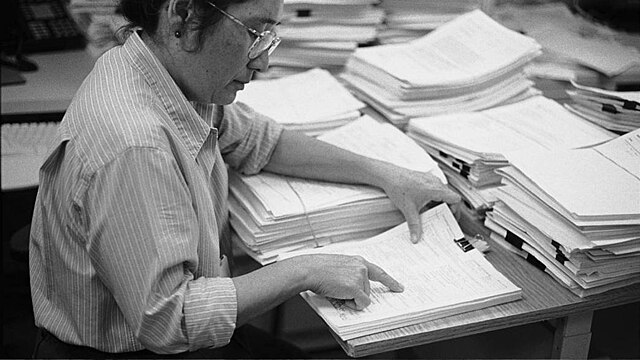Peer review is the evaluation of work by one or more people with similar competencies as the producers of the work. It functions as a form of self-regulation by qualified members of a profession within the relevant field. Peer review methods are used to maintain quality standards, improve performance, and provide credibility. In academia, scholarly peer review is often used to determine an academic paper's suitability for publication. Peer review can be categorized by the type of activity and by the field or profession in which the activity occurs, e.g., medical peer review. It can also be used as a teaching tool to help students improve writing assignments.
A reviewer at the American National Institutes of Health evaluating a grant proposal
Henry Oldenburg was a German theologian, diplomat, and natural philosopher, known as one of the creators of modern scientific peer review. He was one of the foremost intelligencers of 17th-century Europe, with a network of correspondents to rival those of Fabri de Peiresc, Marin Mersenne, and Ismaël Boulliau. At the foundation of the Royal Society in London, he took on the task of foreign correspondence, as the first Secretary.
Oldenburg portrayed by Jan van Cleve (III), 1668


